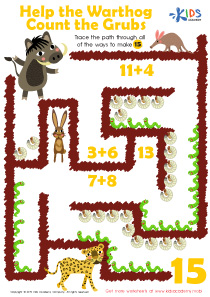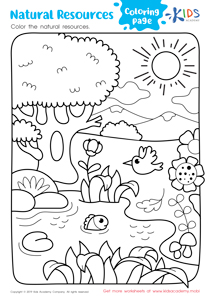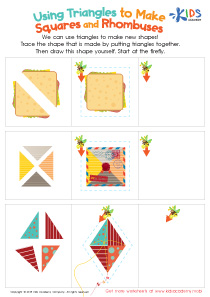Reading comprehension Normal Kindergarten 2D Shapes Worksheets
3 filtered results
-
From - To
Unlock your child's potential with our Reading Comprehension Normal Kindergarten 2D Shapes Worksheets! Designed for young learners, these engaging worksheets help kids explore unique 2D shapes while enhancing their reading and comprehension skills. Each activity integrates visual aids and simple text, encouraging kids to relate shapes to everyday objects, making learning both fun and relevant. By guiding them to answer questions about the shapes, children improve critical thinking and analytical skills. Ideal for home or classroom use, our worksheets promote early literacy while laying a strong foundation in geometry. Discover the perfect blend of learning and play today!
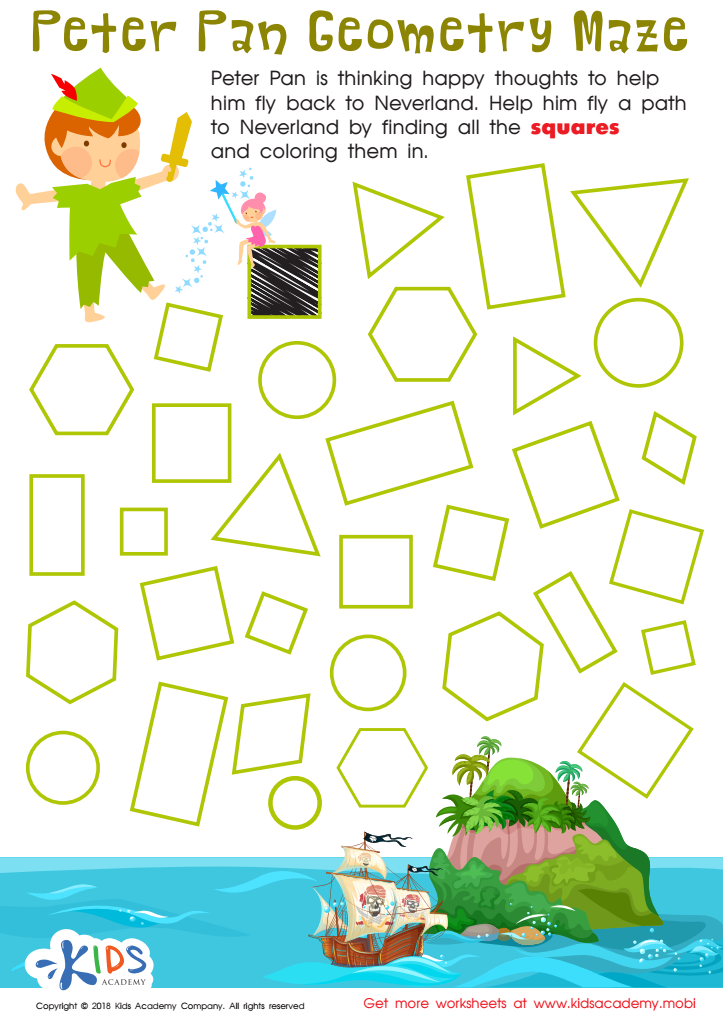

Peter Pan Worksheet
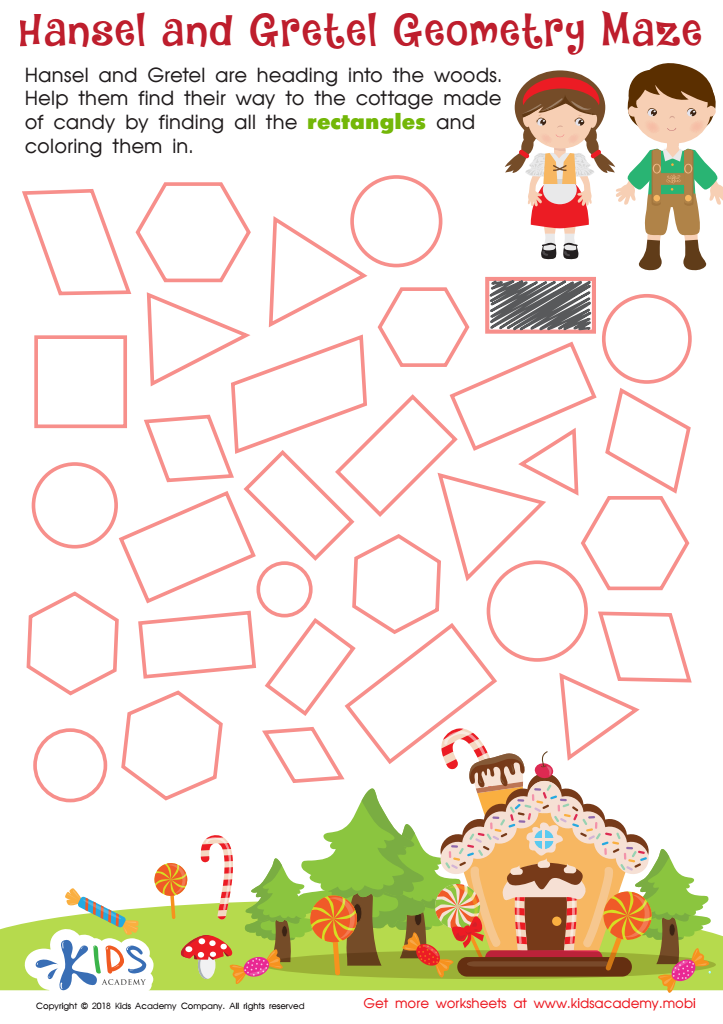

Hansel and Gretel Geometry Maze Worksheet
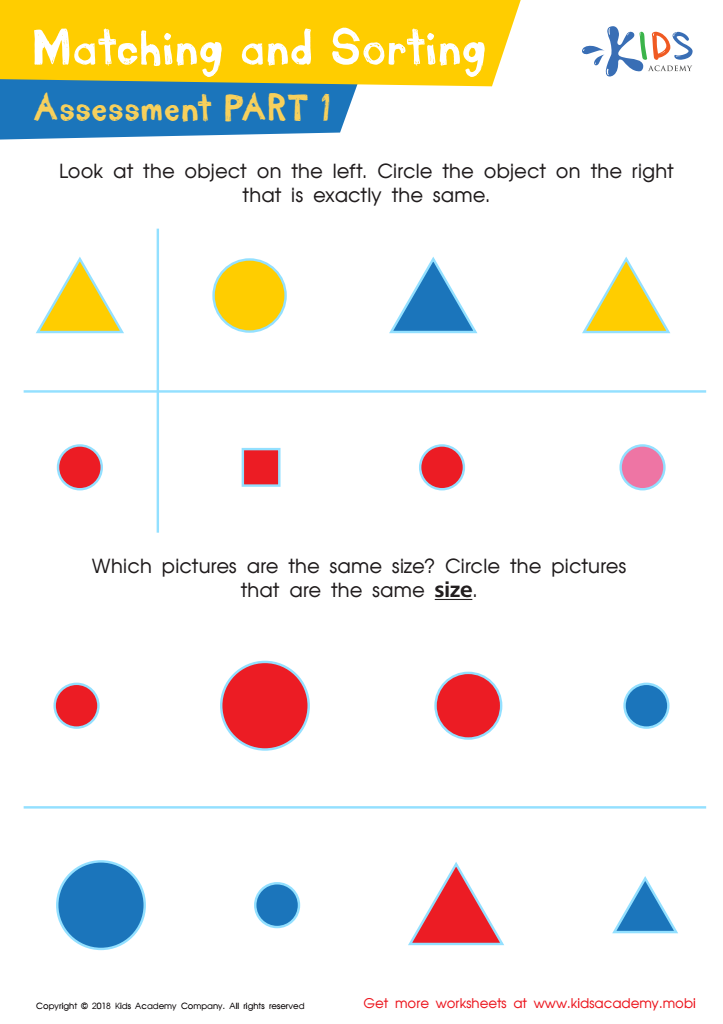

Matching and Sorting for Kindergarten: Assessment 1 Worksheet
Reading comprehension and understanding 2D shapes are crucial components of early childhood education, particularly in Kindergarten. For parents and teachers, fostering strong reading comprehension skills encourages children to engage more deeply with texts, understand instructions, and enhance their vocabulary which supports overall academic success. In a typical kindergarten curriculum, reading comprehension includes various levels of understanding—from recalling details to interpreting meanings—but it also serves as the foundation for critical thinking and problem-solving.
Moreover, 2D shapes are a vital part of mathematical literacy, introducing children to concepts such as symmetry, patterns, and spatial awareness. When combined with reading comprehension, learning about shapes helps children connect linguistic skills with mathematical concepts, facilitating a holistic development approach. Engaging with books that incorporate shape recognition enhances students' ability to decipher information from text while simultaneously exploring geometry.
Encouraging students to articulate their understanding of shapes fosters communication skills and confidence. Parents and teachers must prioritize both reading comprehension and shape recognition to ensure children develop critical academic skills that will support their current learning and set a solid foundation for future educational endeavors. Ultimately, these foundational skills play a significant role in nurturing well-rounded, capable learners who can thrive in diverse learning environments.
 Assign to My Students
Assign to My Students





